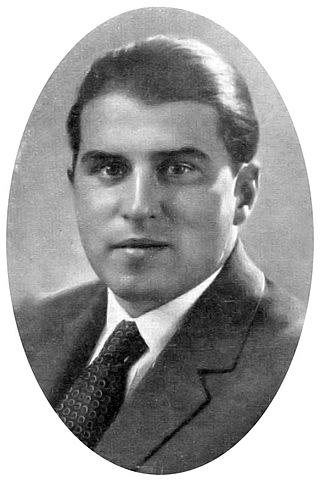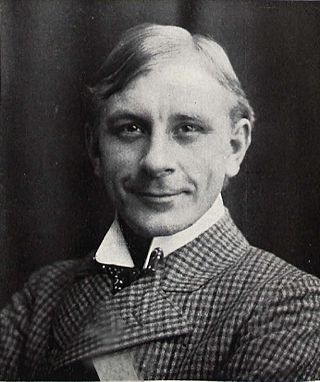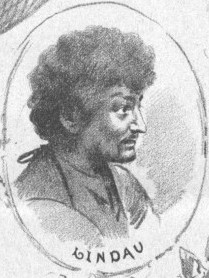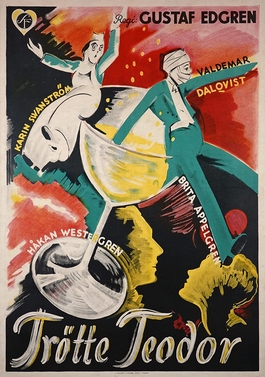
Carl Zuckmayer was a German writer and playwright. His older brother was the pedagogue, composer, conductor, and pianist Eduard Zuckmayer.

Karl Christian Ludwig Hofer or Carl Hofer was a German expressionist painter. He was director of the Berlin Academy of Fine Arts.

Walter Kollo was a German composer of operettas, Possen mit Gesang, and Singspiele as well as popular songs. He was also a conductor and a music publisher.
Bruno Bernhard Granichstaedten was an Austrian composer and librettist. He composed sixteen operettas and music for various films. He contributed the song "Zuschau'n kann i net" to the musical play The White Horse Inn. He emigrated from Austria, ending up in the United States of America in 1940, where he was only able to earn his living by playing the piano at night clubs.

The Carltheater was a theatre in Vienna. It was in the suburbs in Leopoldstadt at Praterstraße 31.
Maximilian Dalhoff Neal was a German playwright, born to the artist David Dalhoff Neal and wife Marie Ainmiller, and later brother to composer Heinrich Neal. His maternal grandfather was the great glass painter Max Emanuel Ainmiller.

Rudolf Hans Bartsch was an Austrian military officer and writer.

Paul Heidemann was a German actor, comedian, film director, film producer, and opera singer. As a performer, he excelled in various genres and was especially noted for his comedic skills
Fritz Greiner (1879–1933) was an Austrian film actor.

Karl Platen was a German actor and cinematographer of the silent era and later the sound era and known for Girl in the Moon (1929) and M (1931).
Max Maximilian was a German singer, actor and director.

Ernst Bach was an Austrian actor and playwright. He made his debut as an actor at the Raimund Theater in Vienna in 1899. In 1903 he moved to Berlin to the Residenz-Theater, then to the Lustspielhaus in 1905, where he became Regisseur in 1906 and in 1908 Oberregisseur.
Franz Arnold (1878–1960) was a German actor and playwright. He frequently collaborated with Ernst Bach as a duo Arnold and Bach after their debut play The Spanish Fly was a hit. He emigrated to Britain in 1933.

Karl Lindau was an Austrian actor and writer. He excelled in comic roles at the Theater an der Wien, and wrote several plays, librettos for operettas and songs.
Rudolf Österreicher, also Rudolf Oesterreicher, was an Austrian writer, librettist, comedy author, author of cabaret texts and biographer. From 1945 to 1947 he was director of the Wiener Stadttheater.

RudolfSchanzer was an Austrian playwright and journalist. He is primarily known for the numerous operetta librettos that he wrote for composers such as Leo Fall, Jean Gilbert, Emmerich Kálmán, and Ralph Benatzky. He was born in Vienna and died in Italy where he committed suicide after his arrest by the Gestapo.

Tired Theodore is a 1945 Swedish comedy film directed by Anders Henrikson and starring Max Hansen, Annalisa Ericson and Tollie Zellman. It was shot at the Sundbyberg Studios in Stockholm. The film's sets were designed by the art director Max Linder. It is based on the 1913 German play of the same title by Max Ferner and Max Neal which has been adapted for the screen a number of times.

Tired Theodore is a 1931 French-Swedish comedy film directed by Gustaf Edgren and starring Valdemar Dalquist, Karin Swanström and Brita Appelgren. It was shot at the Råsunda Studios in Stockholm. The film's sets were designed by the art director Arne Åkermark. It is based on the 1913 German play of the same title by Max Ferner and Max Neal which has been adapted for the screen a number of times. A separate French-language version Night Shift, directed by Henri Fescourt, was also produced in 1932.











